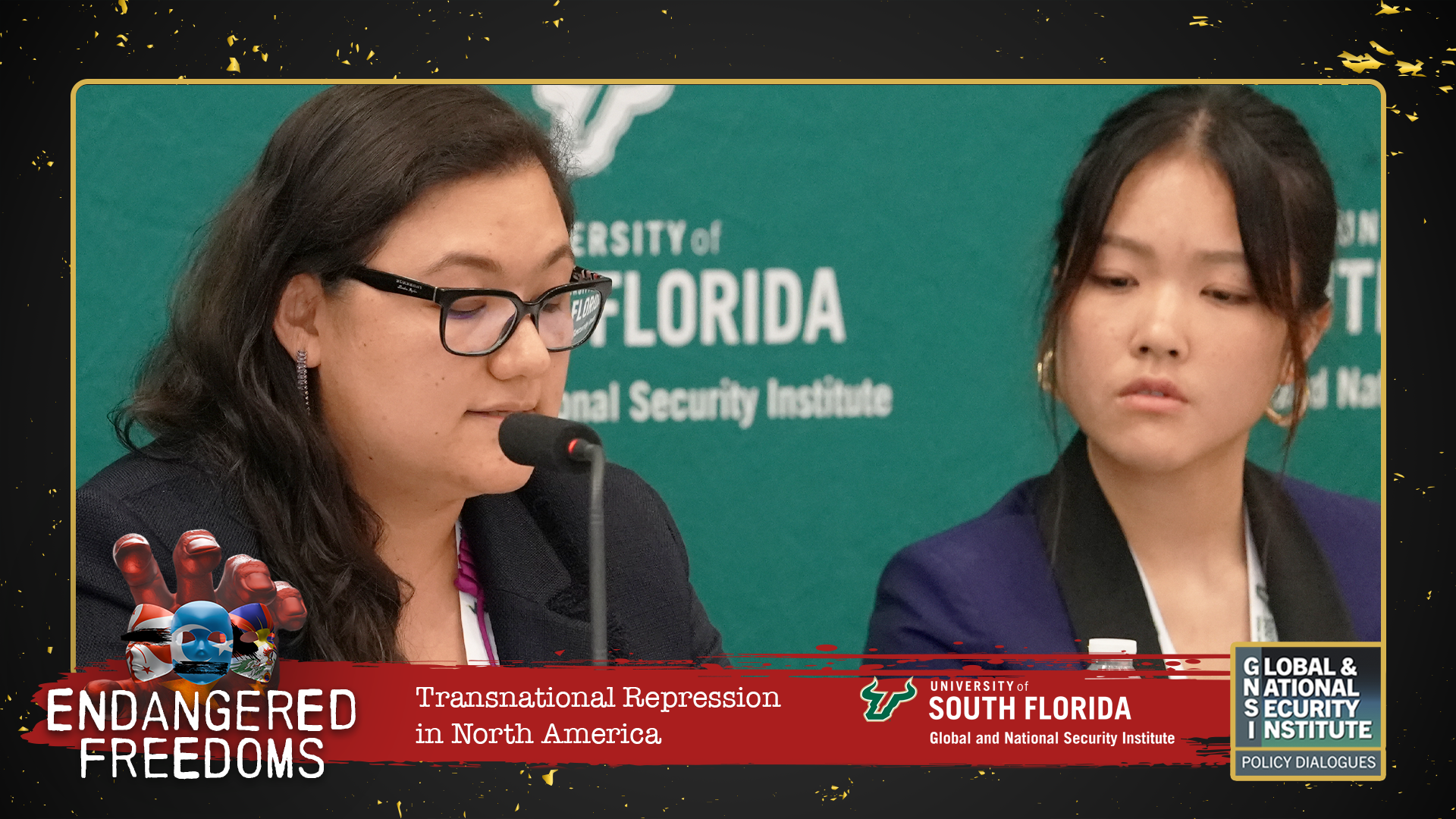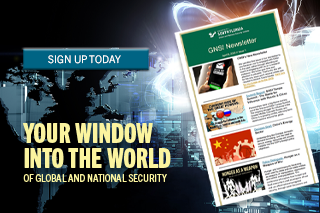On May 15, 2024, the Global and National Security Institute (GNSI) at the University of South Florida (USF) hosted its third GNSI Policy Dialogues, "Endangered Freedoms: Transnational Repression in North America." The Policy Dialogues series focuses on specific issues affecting national security, bringing together some of the best and brightest strategic thinkers, leaders, and subject matter experts from around the globe. The over-arching goal of the Policy Dialogues series is to provide policymakers and thought leaders with a broader understanding of the various challenges facing the United States.
GNSI’s Policy Dialogues conference on Transnational Repression examined how the Chinese Communist Party (CCP) has targeted the overseas Uyghur, Tibetan, and Hong Kong communities. Speakers shed light on how the People’s Republic of China has established police stations in countries around the world, including the United States, and uses these installations as key nodes in a systematic global effort to monitor, harass, and intimidate both Chinese and third-country citizens.
You can watch all of the conference videos at the GNSI Policy Dialogues: Endangered Freedoms: Transnational Repression in North America
Playlist on our YouTube Channel.
Direct links to specific videos are noted below.
Morning Session
The conference host, Jim Cardoso, Senior Director at the Global and National Security Institute at the University of South Florida, welcomed the audience to the Patel Center for Global Solutions Auditorium. Watch his remarks.
Following the opening and welcome, Dr. Eric Eisenberg, Senior Vice President of University-Community Partnerships at USF, stressed the need for universities to create a safe environment for all USF students and to look deeper into the experiences of all students on campus. Watch Eisenberg's full remarks here.
Taking the stage after Dr. Eisenberg, Omer Kanat, Executive Director of the Uyghur
Human Rights Project, started the day's discussion with a historical look at the ways
Uyghur’s civil and political rights have been violated. He detailed how the Chinese
government’s efforts have evolved to control and repress Uyghurs within China and
abroad by way of online threats and harassment. “In short, the scale of China's
translational repression of Uyghurs is breathtaking. From the rendition of individuals
to the everyday online threats, there is no peace for Uyghurs living overseas.” Watch Kanat’s full remarks here. 
Following Kanat’s remarks, in a short, recorded video, Senator Marco Rubio spoke to the CCP’s repressive actions against Uyghurs, Tibetans, Hong Kongers, and Falun Gong practitioners. He highlighted his efforts to pass the Uyghur Forced Labor Prevention Act and warned about the CCP's influence in the U.S. Watch Rubio’s full remarks here.
The morning session concluded with the day's first discussion panel, with Panel 1: Threads of Oppression: The Global Impact of Transnational Repression.
The panel featured:
David Oakley, PhD (Moderator), Academic Director, Global and National Security Institute
Allison Quatrini, PhD, Associate Professor of Political Science, Eckerd College
Laura Harth, Campaign Director, Safeguard Defenders
Watch the complete panel here.
* * * *
Afternoon Session
The afternoon started with a fireside chat and Q&A Discussion of the documentary “All Static and Noise.” The Honorable Kelley Currie, former ambassador-at-Large for Global Women’s Issues at the U.S State Department led the discussion with Jewher Ilham, the central figure in the film. The two discussed Jewher’s experience as the daughter of a jailed Uyghur scholar, Ilham Tohti, after he was arrested on his way to the U.S. Jewher described how she has been monitored and threatened by the CCP and the struggles she faces, along with other activists, as they speak out. But she also explained her reason for speaking out. “People live in this world not only for ourselves but for the existence of our loved ones, right? At least, that's how I believe human lives are alike. And we don't only live for ourselves, we live for our loved ones, but if all of our loved ones are no longer here with us, then what other choice do we [have] besides fighting?”
Watch the full discussion here. 
The day concluded with Panel 2: The Human Toll: Living with Transnational Repression.
The panel featured:
Jeff Rogg, PhD (Moderator), Resident Senior Research Fellow at GNSI
Ziba Murat, Global Activist Fighting Chinese Transnational Repression
Frances Hui, Policy and Advocacy Coordinator, The Committee for Freedom in Hong Kong Foundation
Watch the complete panel here.
Save the Dates:
September 24-25
GNSI Tampa Summit 4: Middle East Collective Security
featuring the 10th Great Power Competition Conference (GPC10)
November 11-14
GNSI Policy Dialogues:
Untying the Gordian Know: Envisioning Peace in the Middle East
* * * *
Be sure to sign up for the GNSI Newsletter! Publishes first Wednesday of each month.

